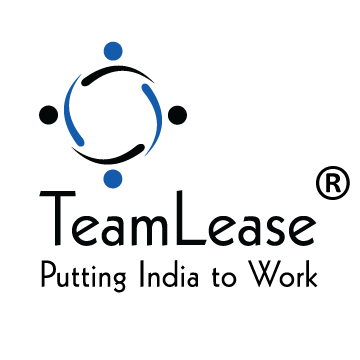5 Shifts Reflecting the Changing Consumer Movement in India

The Indian FMCG sector is undergoing a profound transformation. Valued at over $250 billion in 2025, it is projected to reach $1.1 trillion by 2033, driven by evolving consumer movement in India, technology adoption, and changing lifestyles. From health-conscious choices to digital-first purchasing, these shifts are not just trends; they are redefining the way FMCG companies operate and engage with consumers. These rapid shifts aren’t just shaping consumer behaviour; they’re creating new workforce challenges, especially related to the workforce. Organisations must rethink hiring strategies, workforce flexibility, and digital tools to meet evolving consumer demands efficiently through effective workforce management.
- Why Is Direct-to-Consumer (D2C) Disrupting Traditional Channels?
The D2C model is reshaping retail, with India’s D2C e-commerce market valued at $87.5 billion in 2025, expected to cross $320 billion by 2033. Agile brands are reaching consumers directly, building personalised experiences, and responding to feedback faster than traditional players. This shift reflects the changing consumer movement in India, where buyers now expect customised, transparent, and efficient interactions with brands. The D2C boom creates demand for roles in e-commerce operations, customer experience, and delivery partners. Organisations must plan for hiring and upskilling to manage employees and delivery partners effectively, ensuring seamless direct-to-consumer operations. - What Do Conscious Consumers Really Want?
Modern consumers increasingly demand products that are natural, organic, and sustainably sourced. FMCG brands are responding with transparent labelling, eco-friendly packaging, and products that reflect social and environmental responsibility. Integrating consumer responsibilities into product strategies not only meets demand but also strengthens brand credibility. The future consumer increasingly makes choices based on ethics and sustainability, turning conscious consumption into a market driver.
- What’s Driving the Health and Wellness Revolution?
Indian consumers are increasingly prioritising their well-being, reflecting a growing sense of consumer responsibility. The nutritional supplements market in India, valued at around $21 billion in 2025, is expected to reach $57 billion by 2033, with a CAGR of 11.14%. FMCG companies are responding by fortifying products, launching plant-based and functional foods, and expanding health-focused offerings. From protein powders to functional snacks, the future consumer is no longer confined to gyms or health stores – they are integrating wellness into everyday life. Brands that align with these choices are likely to build stronger loyalty and long-term engagement. - Why Is a Flexible Workforce Key to FMCG Agility?
The pace of change in the FMCG sector has made traditional employment models insufficient. Companies are embracing a flexible workforce, leveraging gig talent for last-mile delivery, warehousing, and sales. This ensures that operations can scale up or down in response to seasonal or hyperlocal demand. An efficient distributor and consumer management system, combined with workforce flexibility, allows FMCG companies to respond to the changing consumer movement in India without compromising speed or service quality. - How Are Companies Adapting to This New Reality?
These shifts underscore the importance of agile hiring, digital workforce management, upskilling, and flexible deployment strategies. Organisations that align their talent strategy with the future consumer mindset will lead in the rapidly evolving, increasingly conscious, and driven-by-choice era. FMCG companies are not merely observing these trends; they are actively adapting to meet the changing needs of the future consumer. Investments in digital infrastructure, D2C channels, health-oriented product lines, and a hybrid workforce are helping brands navigate this dynamic market.The consumer shifts in India are more than a trend; it’s a blueprint for how companies will engage, innovate, and grow in the next decade. Those who embrace these shifts will lead the way in a sector that is rapidly evolving, increasingly conscious, and powered by choice.
Latest Blogs
Permanent vs. Contract Staffing: What’s Right for Your Business?
Workforce strategy matters now more than ever in India’s evolving employment landscape. As businesses strive for growth, efficiency, and regulatory compliance, choosing between permanent staffing...
Read MoreApprenticeship Programs vs Internship: Understanding the Difference
As India sharpens its focus on employability, workforce formalization, and industry-aligned skilling, the conversation around apprenticeship programs vs. internship has become increasingly important. For employers,...
Read MoreApprenticeship India: A Guide to NAPS, NATS & Compliance
As India strengthens its workforce strategy, apprenticeship initiatives in India are gaining renewed relevance for employers across sectors. With skill gaps widening and compliance requirements...
Read MoreHow Apprenticeships in India Help Build Job-Ready Talent?
In a fast-evolving job market, businesses across India face a common challenge: finding candidates who are not just qualified on paper but ready to perform...
Read MoreStrategic Workforce Planning in India: Why Smart Talent Strategy is Important?
For years, strategic workforce planning in India was treated as a back-office exercise—something to be revisited when hiring pressure built up or attrition spiked. That...
Read More





